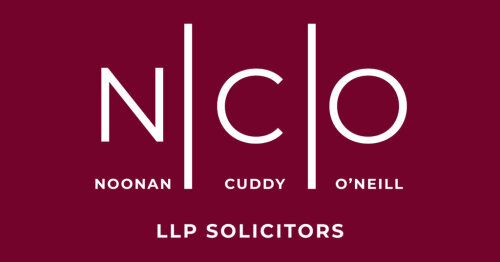Best Sexual Abuse Lawyers in Loughrea
Share your needs with us, get contacted by law firms.
Free. Takes 2 min.
List of the best lawyers in Loughrea, Ireland
About Sexual Abuse Law in Loughrea, Ireland
Sexual abuse is a grave violation of an individual's rights and safety. In Loughrea, Ireland, as in the rest of the country, sexual abuse is considered a serious criminal offence and is governed by comprehensive national laws. This can include a wide range of non-consensual sexual activities, exploitation, or unwanted sexual advances involving adults or children. The law aims to protect victims, prosecute offenders, and offer support through legal and social services. Sexual offences are investigated by An Garda Síochána, and both criminal and civil proceedings may be initiated depending on the circumstances.
Why You May Need a Lawyer
Sexual abuse cases are complex, stressful, and involve sensitive personal matters. You may need a lawyer in a variety of situations, including if you are a victim seeking justice, accused of sexual abuse, or need advice on your rights and obligations. A lawyer can help you understand the legal process, protect your interests, ensure your voice is heard, and guide you through Garda interviews, court procedures, and seeking compensation. Victims often require guidance on reporting the abuse, obtaining protection orders, or navigating the child protection system. Alleged offenders also need strong legal representation given the significant consequences involved.
Local Laws Overview
In Ireland, sexual abuse is primarily prosecuted under the Criminal Law (Sexual Offences) Act 2017 and related legislation. The Act sets out specific definitions regarding consent, sexual assault, rape, child sexual abuse, and offences against vulnerable individuals. Local authorities in Loughrea follow national procedures but work closely with HSE social services, Garda stations, and dedicated support agencies. Key laws emphasize the protection of victims' identities, provisions for reporting abuse, support for survivors, and strict penalties for offenders. Consent must be informed, voluntary, and freely given, and the age of consent in Ireland is 17 years old.
Frequently Asked Questions
What is classified as sexual abuse under Irish law?
Sexual abuse includes any unwanted sexual activity, sexual exploitation, rape, sexual assault, or contact without clear consent. It applies to both children and adults, with stricter protections for minors and vulnerable individuals.
What should I do if I am a victim of sexual abuse in Loughrea?
If you are in immediate danger, contact the Gardaí (Irish police) at 999 or 112. Seek medical care if needed. You can report the incident to your local Garda station, and consider reaching out for legal advice and support services.
How do I report sexual abuse in Loughrea?
Report the abuse to your local Garda Síochána station or contact national helplines for guidance. You do not need to decide whether to press charges immediately - reporting allows authorities to support and inform you on next steps.
Can a person be prosecuted for historical sexual abuse?
Yes - there is no time limit for prosecuting sexual offences in Ireland. Victims are encouraged to come forward regardless of when the abuse occurred.
Will my identity remain confidential if I report abuse?
Yes - Irish law provides robust protections for victims' identities. Media and public records cannot reveal information that would identify a complainant in a sexual offence case.
What legal supports are available for victims?
Victims may access free legal advice, apply for protection orders, and receive support from specialized agencies and the HSE. The court can make special arrangements to ensure victims feel safe and supported during proceedings.
What happens if the alleged offender is a minor?
Irish law deals with offenders under 18 within the youth justice system, focusing on rehabilitation as well as protection for the victim. Each case is carefully assessed to balance the interests of both parties.
Can a victim seek compensation?
Yes - victims may apply to the Criminal Injuries Compensation Tribunal, and civil claims can be pursued against the perpetrator in certain circumstances. A legal adviser can discuss your options.
Should I get medical attention?
Yes - even if injuries are not obvious, medical examination is important for your health and can collect evidence if you wish to pursue criminal charges in the future. Hospitals can refer you to specialized sexual assault treatment units.
How can a lawyer help me with a sexual abuse case?
A lawyer provides confidential advice, represents your interests, explains your rights, and can help you navigate Garda statements, court visits, and compensation processes. They act to ensure the legal process is fair and supports your recovery.
Additional Resources
If you or someone you know has experienced sexual abuse in Loughrea, the following organizations and services can offer help and support:
- Women's Aid - National support for women affected by abuse
- Rape Crisis Centre Galway - Confidential counselling and support
- An Garda Síochána - Local Garda station in Loughrea
- HSE Child and Family Agency, Tusla - Support for children and families
- Legal Aid Board - Legal advice and representation for those on low incomes
- Galway Domestic Violence Refuge and Support Service
- Sexual Assault Treatment Units (SATU) - Medical and forensic care following sexual assault
- Crime Victims Helpline - Support and information for all crime victims
Next Steps
If you need legal assistance regarding sexual abuse in Loughrea, first ensure your immediate safety and well-being. Contact local support agencies or the Gardaí if you require urgent help. Arrange a confidential consultation with a solicitor experienced in sexual offences, either through a local law firm or via the Legal Aid Board. Document your experience in as much detail as possible and keep records of relevant evidence or communications. A qualified lawyer can guide you step-by-step through the reporting process, represent you in legal proceedings, and help you access support services for long-term recovery.
Lawzana helps you find the best lawyers and law firms in Loughrea through a curated and pre-screened list of qualified legal professionals. Our platform offers rankings and detailed profiles of attorneys and law firms, allowing you to compare based on practice areas, including Sexual Abuse, experience, and client feedback.
Each profile includes a description of the firm's areas of practice, client reviews, team members and partners, year of establishment, spoken languages, office locations, contact information, social media presence, and any published articles or resources. Most firms on our platform speak English and are experienced in both local and international legal matters.
Get a quote from top-rated law firms in Loughrea, Ireland — quickly, securely, and without unnecessary hassle.
Disclaimer:
The information provided on this page is for general informational purposes only and does not constitute legal advice. While we strive to ensure the accuracy and relevance of the content, legal information may change over time, and interpretations of the law can vary. You should always consult with a qualified legal professional for advice specific to your situation.
We disclaim all liability for actions taken or not taken based on the content of this page. If you believe any information is incorrect or outdated, please contact us, and we will review and update it where appropriate.









